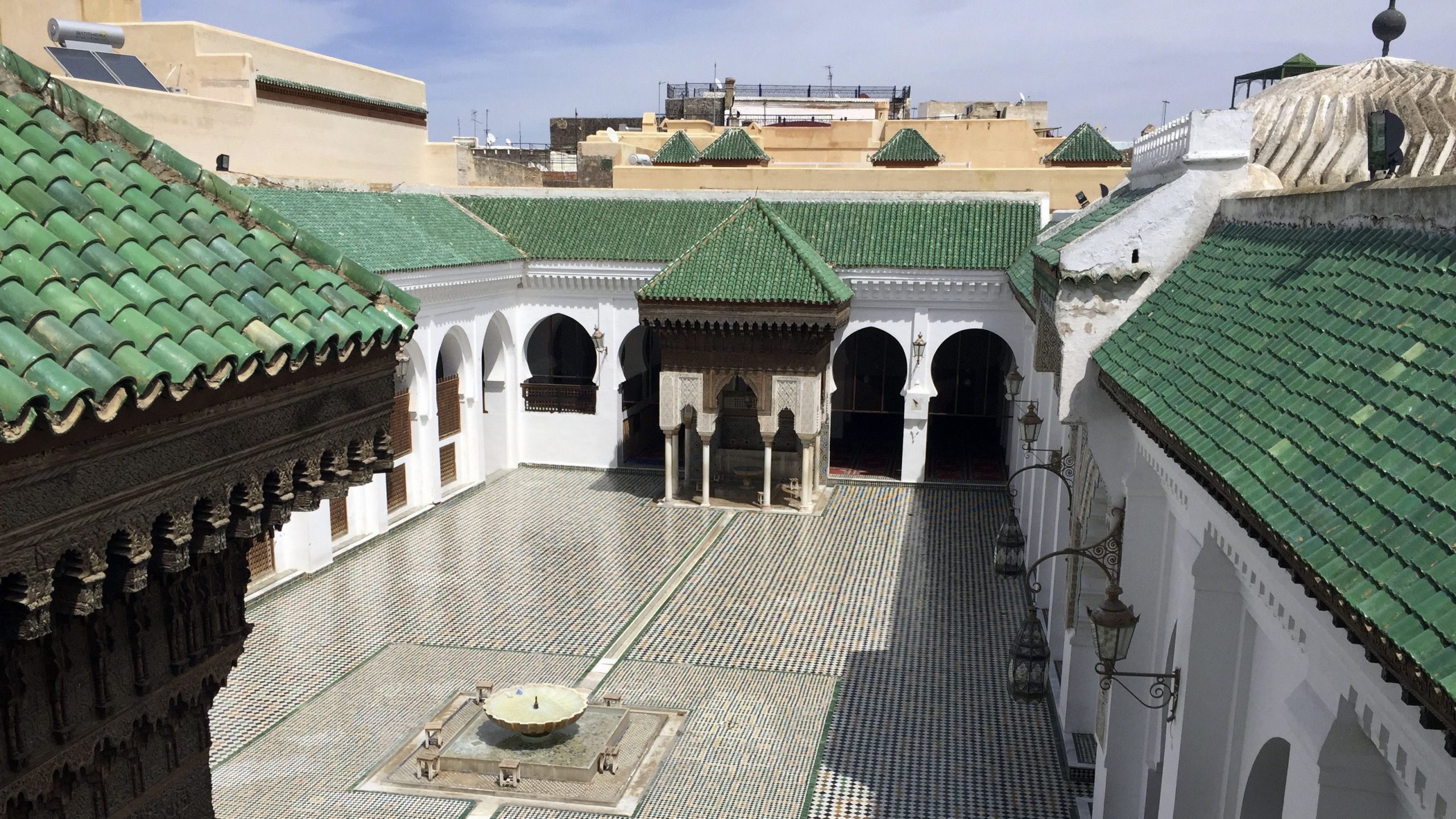From Morocco to Syria: The Enduring Importance of Libraries

Anahita Padmanabhan ’18/Emertainment Monthly Staff Writer
This year, al-Qarawiyyin Library opened its door to everyone. This may not seem like a big deal to those of us not in Fez, Morocco, where this library is located, but it is. It’s the oldest library in the world. While bookstores and e-books are dominating the literary world, it’s easy to forget about libraries. However, this 1,257 year old library, shows that through decades, through centuries, even through millennia, libraries will never stop being important.

The library is truly a timeless place, and its history shows its place consistently ahead of society. Fatima El-Fihriya, the daughter of a wealthy merchant, used her inheritance to build the library in 859. El-Fihriya challenges even present day notions surrounding Muslim women. Well educated and a woman of her faith, El-Fihriya wanted to create a center for her community that mirrored those two things that were so important to her.
Something that El-Fihriya recognized is that education and knowledge should be a level playing field, regardless of where you are from or what you look like. El-Fihriya’s forward thinking has now given us the oldest functioning educational institution in the world. Famous Muslim historian Ibn Khaldun studied at the school, and the original copy of his Muqaddimah is still in the library.
But al-Qarawiyyin wasn’t just a place for Muslims. Jewish philosopher Maimonides is also listed among the alumni. Pope Sylvester II visited the library in the 10th century. The library served as place that anyone could come to, whether you were from Europe, or from Africa. Scholars from any place, and of any religion were welcomed.
Over the 1,000 plus years the al-Qarawiyyin has existed, it has had it’s ups and downs. Through it all the actual building went through many changes, but not enough to fully bring it to this century. Until 2012. Aziza Chaouni carries the legacy El-Fihriya created into modern times. Chaouni lead the three year restoration of al-Qarawiyyin. The library now has solar panels, digital locks to keep rare books safe, and air conditioning to help control the humidity that could damage the books. It even has a cafe for the general public.
But despite all these modern changes, Chaouni has also kept the original look and more importantly, the spirit, of al-Qarawiyyin alive. The courtyards, the fountains, archways and original tiles were all carefully restored to be as true to the original as possible.
If there is anything that al-Qarawiyyin can tell us, it’s that books will never stop being important. And while al-Qarawiyyin’s 1,000 years show that, all across the world we can see the power of libraries. Throughout history, we know of people saving books during times of terror. One example is Darayya, Syria, which has been under siege for the past four years. With over 2,000 people killed, with the fear of being shot or bombed, many students had to stop their education. But those same students did something incredible.
Just like El-Fihrya, they knew the power of education, and they understood the power of books. So they created a secret library, which houses over 14,000 books. They risk their lives to collect books. Anas Ahmad, a former student, was one of the founders. He and other students scour the bombed streets, hiding from snipers, for the sole reason of finding more books to add to the library. The books help students continue their education, help children escape their reality, help doctors read up on treatment to help their patients.
This library, whose exact location is unknown for fear of it’s destruction, and al-Qarawiyyin seem to have such different contexts. One built out wealth, one built out of preservation, one mainly used for elite academics, one used for anyone who needs a book. But they share the belief that books are some of the most important things we have. Those books in al-Qarawiyyin are the reason for it’s continued existence. The books in the Darayya are the reason that the future of this town can continue to grow and be educated.
The message these two very different libraries share is very clear. Books have power, and access to them will always be a priority. It doesn’t matter if wealthy merchant’s daughter funded it, if college students risk their lives for it, or if it’s te one in your home or down the street, libraries are always going to be important.